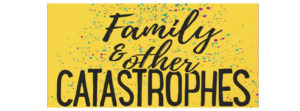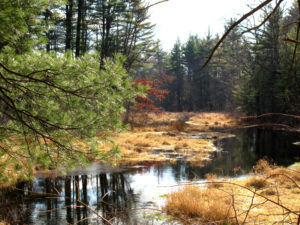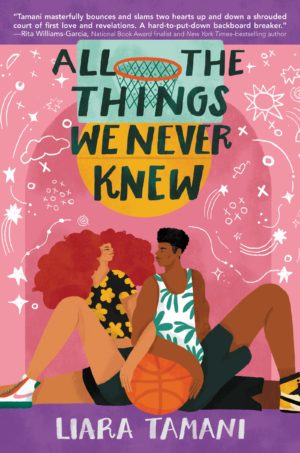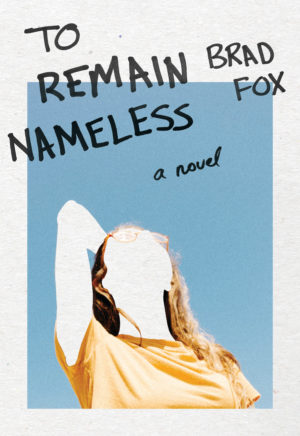Green-Skinned Handsome Man
I sat in the bar of the Sunrise Diner, nursing a key lime pie milkshake and watching the beginning of the Space Age. As Sputnik flashed on the television over the bar, the holo-characters murmured among themselves, sounding, as far the Historion knew, just like the ancient Americans who had seen the event in reality.
Ganymede’s new Federal Party government had decided that the kids of our colony world needed to learn more Earth history, so they’d voted to establish the Historion in the old Harakhtes water plant, as the hyperloop infrastructure to the major arcologies was already there. The plan was to maintain seven “period rooms” that used a mix of holograms and props to create a replica of a typical scene in a past civilization. Between the different rooms, the Historion offered the colony’s kids and anyone else who cared to visit a condensed world history lesson, from the rise of agriculture at Gobekli Tepe around 9000 BCE to the Colonial Revolutions of the 2290s CE, just over a hundred years ago. I was a local history buff, so I was now on the Historion’s payroll as an antiquarian, a fixer, looking for continuity errors in the displays. Today, I was beta-testing the fifth of the seven period rooms: an Iowa diner on October 4th, 1957 CE. The heyday of the American Empire.
I sucked more of the milkshake into my mouth, then tipped my head back and let it run down my throat. This wasn’t the way most people drank, in 1957 or today, but I didn’t have a choice. I was a lóng rén, a dragon man, one of the gengineered soldier races created by the Chinese in World War Four. My ancestors had been modified in utero with DNA from Komodo dragons and the Malagasy giant chameleon. As a result of that, I stood 2.5 meters tall, had green scaly skin (armored like a monitor’s but with a chameleon’s lattice of guanine nanocrystals that allowed me to change color) a long prehensile tail, and a Komodo dragon’s heavy-jawed head with a chameleon’s projectable tongue. The Chinese lost the war, but the peoples they created were still around. Most lóng rén today lived inside Themis, the asteroid that an international commission had assigned as my people’s homeland after WWIV. Much of the my soldier ancestors’ culture was still dominant there. Even my name, Epaminondas Liú, followed their naming practice, with the first name of a great warrior of history and the family name of one of China’s imperial families. When I’d left Themis on an ice freighter, I’d learned quickly that a pretentious-sounding name didn’t go well with looking like a V-game monster. I mostly went by Ep now, as it was suitably gruff and dull-sounding for a being that everyone thought should be stupid.
But I was getting maudlin. It was time to get to work. The food was good, so I needed to test the conversational parameters. I clicked my fingers, a signal that I was ready to interact with the holo-characters. Within a few seconds, one leaned over to talk to me. The character was a Caucasian male wearing the clothing of the time: blue jeans and an AFL T-shirt. “Whaddya think about that, huh? The Reds have finally done it! Put a machine up into space, just like in Amazing Stories.”
“Hold it,” I said. The holographic components of the room froze: the customers, the TV, and the scene out the window. The chairs and most of the food-preparation equipment remained, and the cook’s hologram flickered off to reveal a kitchenbot. I tapped my datagoggles to activate my edit authority: they were a historical relic themselves in this age of datalenses, but I hadn’t been able to find lenses that fit my reptilian eyes. “Historion, replace all references to American Football League with National Football League-no, better, Major League Baseball. The AFL didn’t exist at this time. Also, new entry for the visitors’ lenses glossary overlay: ‘Reds’ as a synonym for ‘Soviet Empire,’ with tabs to the Vpedia entries on ‘Soviet Empire,’ ‘propaganda,’ and ‘Cold War One.’”
I looked around the still diner. Something else was missing, something I’d read about as an important part of the culture of this era. I snapped my fingers, my stubby claws scraping against each other. “Music! That’s it! Historion, add a jukebox in the corner. Red vinyl, coin-operated. Add an interactive feature so that kids can use it.”
The low-level AI running the facility complied immediately with my request, a jukebox shimmering into existence in a millisecond. “What should the music library be, Ep?”
I hesitated for a moment, then realized there could only be one choice. “Chuck Berry, the greatest musician of this or any age. Upload all of his records that were available at this point in time. Add the B sides as well. And…restart.”
The holocharacters unfroze, and “Maybellene” began to play from microspeakers in the room’s walls. By some trick of holographic ventriloquism, it sounded exactly as if it was coming from the jukebox. I shook my head back and forth in delight: this was my favorite song. When I’d heard it as a youngster in Themis, it had sparked my curiosity about both other ways of living and history. I wanted to know what a V8 Ford was, and what it felt like to drive one up a hill. Or what it felt like to drive anything. Or what a hill was like: the hollowed interior of Themis was almost entirely flat. As I swayed to the beat, I reflected that things could be worse. I had a decent job here, a nice apartment in the Lakhmu Arcology, and enough free time to do my own research and create new educational modules for Vpedia. If only I had a social life…
Then the doors burst open, and I remembered why I didn’t want one.
“What the hell are you doing, Ep?” Nasir Melnyk, prop director for the Historion, was standing in the doorway at the head of a group of visitors. He snapped his fingers angrily, and the holo-characters froze again, the five citizens behind him looking around the room curiously. Oh, gods. People. And Melnyk hated my guts, he’d never liked having one of my people working here. Still, I couldn’t respond angrily to him. If there was one thing I’d learned in my life after leaving Thetis, it was that the giant lizard man was always the bad guy in a conflict.
“What’s the problem, Nasir?” I responded evenly.
“It’s Mister Melnyk to you!” the little man shouted. “And what do you mean, what’s the problem? You’re the problem, dragon man! You call yourself an antiquarian and you sit at a bar in fifties America looking like the period’s conception of an alien while I’m trying to show these good people what their history looked like? How unrealistic is that? You’re completely breaking period immersion!”
I tried to ignore the anger building up inside me, putting on my fake smile. The one that didn’t show any of my teeth, so as not to alarm bigots like Nasir. “I was beta-testing this bar, Mr. Melnyk. I reprogrammed a few characters, tried the milkshakes, and added a jukebox with some Chuck Berry records-”
Nasir snorted, cutting me off. “Like the opinions of one of your kind matter when it comes to food. And if Chuck Berry is that noise I heard coming in, wipe it from the system immediately. This exhibit focuses on the Space Age, we don’t need trash like that clouding the message.”
Something inside me snapped. The prejudice I was used to, but criticizing Chuck Berry was over the line. “Shut up, Melnyk!” I said. The little man was so shocked that he actually obeyed. “These exhibits aren’t infoslides about one thing, they’re alive, pieces of what the period would actually have been like. Time periods aren’t defined by just one event. At the start of the Space Age, Chuck Berry’s music was taking America by storm. His music sparked rock and roll, and was danced to by generations of teenagers. It belongs here.” Nasir tried to say something, but I rolled right over him. “And another thing that was happening in this period: the beginning of the end of American segregation. In September 1957, one month before Sputnik, the governor of Arkansas deployed the state National Guard to prevent black students from entering a high school. It became such a big deal that the American president at the time-that First Atomic War general, Eisenhower-nationalized the state guard and sent federal troops to make sure the black students could go to school. If you’re going for complete accuracy, non-white people probably wouldn’t even be allowed in a typical American diner of this time period. Which would make all of us here, and most people on Ganymede, be breaking period immersion.” I paused for a moment, taking in the stunned look on Nasir’s face and the interest from the spectactors. Most of them had probably never heard a dragon man speak before. “Chuck Berry’s music was about that, too. He was a minority breaking into mainstream music. He was turned out of concerts booked for him when the organizers realized he wasn’t white.” I stepped forward, looming over Nasir. I wanted this message to sink in. “Just because you’re working on an American Empire exhibit doesn’t mean you have to import that era’s prejudice and hate. Plus, only incompetent historians try to simplify an era down to one ‘message.’ So the Chuck Berry music stays. Okay?”
Nasir only nodded, his Adam’s apple bobbing up and down in his throat.
“Good. Just wanted to make sure we were clear on that, Nasir.” I stressed his first name.
“Yes, Ep,” he squeaked. He left the room at a pace just short of a jog, the visitors following him.
I turned back to the bar and ordered another milkshake, trying to shake off the sense that my words had fallen on deaf ears. Suddenly, I heard a cough from behind me and turned around.
One of Nasir’s tour group remained, a slight woman wearing the blue jumpsuit of a Ganymede Power Consortium engineer. “I’m Saanvi Cissé,” she said. “I just wanted to say…that was really brave, standing up to him like that. We know what it’s like to be a member of one of the more unusual offshoots of humanity, on a small colony like this.” I noted the slim metal band around her forehead: Saanvi was a Multitude, one carrying the recorded memories of others. “It was also…kind of hot,” she said, smiling. “I was thinking, would you like to go out sometime?”
I smiled back, for real this time. “I know a great nightclub in Ninlil Crater. How about tomorrow at twenty-one hundred?”
“That would be great,” she said. “See you then!” She strolled out of the room.
I snapped my fingers and the holograms restarted. As Chuck Berry’s “Brown Eyed Handsome Man” began to play, my grin widened. Maybe, just for tomorrow, I could be a green-skinned handsome man.
**
Sam Matey is a 17-year old Environmental Science major at the University of Southern Maine, and loves thinking and writing about the future of humanity and its biosphere. He runs a newsletter about our current epoch, The Weekly Anthropocene, where you can learn more about the hopes for humanity’s future.
**
Image: Flickr / belpo







